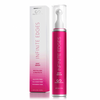
How Can I Stop Hair Loss and Regrow Hair Naturally?

Hair regrowth and hair loss are normal biological processes faced by everyone. Almost 40% of men and most women complain of hair loss, making this a fairly common condition. With many people having hair loss issues, hair fall cures and treatments are becoming increasingly popular.
Hair loss is extremely prevalent in the United States, affecting over 45 million men and 25 million women. However, medically, hair loss is rarely fatal, but it may have terrible emotional consequences, particularly in women.
Hair loss is something many people have been worried about because hair is a vital part of our physical body that enhances our overall appearance. The issue of hair loss is important, particularly for women who keep a lot of hair and those who have lost their hair have been looking for an answer on whether hair regrowth is possible.
Hair loss, medically referred to as Alopecia can affect your whole body or just your scalp. It may also be temporary or permanent. There are many factors responsible for hair loss. The common causes of hair loss include hereditary, medical conditions, and aging. Whatever may be responsible for your hair loss, in this post, we will discuss facts about hair loss and provide steps to regrow hair naturally.
However, before we discuss whether hair regrowth is possible naturally, let us analyze the growth life cycle of human hair.
The Hair Growth Process: Stage of Hair Growth
To understand hair loss and growth and how human hair works, we must first know its growth. Human hair growth occurs through three phases, namely;
- Anagen
The Anagen phase, otherwise referred to as the active phase of the hair development lifecycle, is the stage of hair cell division when hair roots begin developing. The hair grows by at least 1 centimeter every 25 days during the anagen phase.
How well and fast your hair develops during the anagen phase will determine how high your hair will grow. People with short hair have a less active anagen phase, while people with long hair have an active anagen phase.
Also, some parts of the body have a less active anagen phase by default. They include; the hairs on your hands, chest, mustache, etc., although there are exceptions in some cases for certain individuals.
- Catagen
After the anagen phase, your hair enters the Catagen phase. The catagen phase is relatively short and occurs for just 8-10 days. The Catagen hair growth phase is a transitional phase of hair development, and only 3% of hair develops at this phase. It is at this stage that the club hair is formed.
- Telogen
Telogen is the final stage of the hair growth lifecycle. It is the stage when your hair stops growing and rest. Your hair follicle will remain inactive for a long period at this stage. Then it will repeat the cycle.
Symptoms of Hair loss
- Thinning of the hairline: receding the hairline is one of the most common hairs loss symptoms, especially in men. Whenever you notice your hairline receding, it is a sure sign that you are losing your hair.
- Bald spots: The sudden appearance of bald spots is another sign of hair loss. These bald spots appear and start spreading slowly, increasing surface area and eventually eating up your whole hair.
- Loosening and breaking hair: Although shock or emotions can make the hair loosen up. Most times, when you lose and break, it is a sign that you're experiencing hair loss; this is most noticeable when you try to comb your hair.
Causes of Hair Loss
Numerous women experience unexpected hair loss. The majority of hair loss has a cause, whether hereditary, stress, nutrition, medication, or specific health issues.
Losing hair is something that occurs naturally for everyone. A normal human loses up to 70 hairs per day, which is an issue because the hairs are replaced. However, hair loss becomes an issue of concern when new ones do not replace lost hair. Some of the causes of hair loss include:
- The side effect of medication: one of the most common causes of hair loss in most people is a result of reactions to some drugs we have taken. Drugs used to treat cancer, Arthritis, and Heart problems are the most common culprits.
- Heredity: Heredity is the single largest and most common reason many people experience hair loss. If there is a long history of hair loss in your family, then it is safe to assume that you will not be an exception. Androgenic Alopecia, male-pattern baldness, and female-pattern baldness are all names for this disorder.
- Shock and trauma: Shock from an accident, burns, sickness, depression, and stress can disrupt the normal pace of your hair growth, causing a gradual thinning of your hair.
- Nutrient deficiencies: Vitamins and minerals, such as protein, obtained from a nutritious, diverse, well-balanced diet support excellent health throughout your body, ensuring that your organs and internal systems function properly. Poor nutrition or sticking to an extremely restricted crash or lifestyle change can result in nutritional shortages, resulting in hair loss ranging from thinning hair to spots of Alopecia.
- Infections: Infectious diseases that affect the skin, such as syphilis or fungal infections, can be responsible for hair loss. If you discover that an infection causes your hair loss, it is wise to treat the infection first.
- Some hairstyles: Some hairstyles, such as ponytails, can also contribute to hair loss. If you have issues with front hair, avoid those styles, especially for men who need to carve.
- Alcohol, smoking, and Caffeine overdose: Smoking and drinking alcohol disrupts blood dissemination and henceforth causes less blood supply to your scalp. Therefore, if you are concerned about the health of your hair, it is advisable to quit smoking, alcohol, and excess caffeine.
How Can I Stop Hair Loss Naturally?
Hair loss can be caused by aging and heredity, and the underlying cause of hair loss determines treatment success. However, based on medical research, there are some steps that we have discovered to be effective in preventing hair loss. Below are some:
- Taking good care of your hair (wash your hair daily): Washing your hair is a basic hair care routine that should not be overemphasized because dirty hair becomes a breeding ground for lice and dandruff.
- Taking multivitamins: Vitamins are essential for our overall growth and health; therefore, taking multivitamins that provide essential hair nutrients like Vitamins C, D, E, B12, and A are useful in preventing hair loss. Hairfinity Healthy Hair Vitamins is specially formulated to promote healthy hair growth and includes all 5 of those vitamins, plus many more.
- Using coconut oil: Coconut prevents hair thinning by penetrating deep into the hair shafts to slow down hair loss. Also, coconut oil acts as a moisturizer and removes clogs around your hair, setting a stage for full hair growth. Coconut oil also contains lauric acid, which has nourishing characteristics that can penetrate the strands of your hair. Coconut oil penetrates your hair quickly, delivering moisture to reduce frizz and mend breaks.
- Scalp massage: Scalp massages are not only pleasant, but they can also aid in the prevention of hair loss. According to research done in Tokyo, as little as four minutes of massage every day for 24 weeks might create substantial alterations in the dermal papillae. The dermal papillae are structures at the base of the hair bulb that contain many blood vessels that transport nutrients and oxygen to the hair. As a result, the hair thickens and seems to be healthier. Massage also has the added advantage of reducing stress, which has been related to hair loss.
- Washing with green tea: green tea contains Catechins-which can help to prevent dihydrotestosterone (DTH). This hormone can cause the breakage and shrinkage of hair follicles.
- Use Coriander leaves: Coriander contains iron, vitamin C, and proteins, which are essential in hair development. Blend a few handfuls of coriander, mix with a mild shampoo, and apply the smooth paste to the front hair and massage for a few minutes.
- Eating a balanced diet: The significance of eating a well-balanced diet cannot be overemphasized. Eating vegetables and fruits is important for preventing hair loss. Examples of foods that are good for hair growth include Eggs, Spinach, Fish, Potatoes, Avocados, Seeds, etc.
-
Ensure you get enough sun exposure: When you expose your hair to the early morning sun, Vitamin D from the sun acts on your hair to replace the loss and dead follicles, leading to more hair growth.
- Massage the affected area: Massaging the damaged area of your hair improves blood circulation in the region and delivers vital nutrients to the hair follicles. Massaging nourishes your hair and promotes faster growth.
- Make use of Onion: Onions are essential for the growth of your hair because they contain sulfur. Blend the onions, add a few drops of shampoo and massage them into your hair. Leave them on your hair for at least 45minutes.
- Increase intake of fatty acids: The absence of fatty acids also impedes the function of hair follicles. Therefore, fatty acids should be ingested in large quantities by everyone.
- Eat more proteinous meals: Because your hair is made up of protein, increasing your protein intake will aid in hair development. Examine your food to check if you are receiving enough protein regularly. To obtain additional protein, incorporate fish, eggs, lean meats, and dairy items into your diet. Protein-rich foods include leafy green vegetables and beans.
- Use eucalyptus oil: Daily eucalyptus oil on the front hair makes it grow quicker and naturally. Eucalyptus oil promotes hair development by improving blood circulation and stimulating hair follicles. To obtain effective results, apply a coating of the oil to the problematic region or gently massage it into your scalp.
Is It Possible to Regrow Hair?
Hair regrowth is only if the hair follicle is still active. If the follicle has closed, gone, scarred, or hasn't produced a new hair in years, then a new hair won't be able to sprout. If the follicle remains intact instead, it is possible to regenerate the hair—or to increase the health of the existing weaker hairs.
If you start on time, it is feasible to cure hair loss with natural solutions. If not, then you should consult medical therapy. However, it is never too late to begin. Even if you have bald areas on your head, there is always hope for hair regrowth.
However, suppose your hair follicle is blocked. In that case, natural therapies such as massaging with coconut oil and aloe vera gel your hair might help to reopen hair follicles. In addition, certain medical therapies, such as utilizing medically recommended shampoos and oils, can aid in the reopening of hair follicles.
Some Common Myths About Hair Loss
Several myths are flying around about hair care and hair loss. Here we have dispelled some of them.
Shampoo causes or makes hair fall worse: many rumors are flying around that shampoos can cause or worsen hair loss; however, after much research, there is no evidence, at least for now, to back those claims.
Baldness is gender-based: Another myth about hair loss that has been popularized is that baldness is only peculiar to the male gender. However, this is not true as anyone, regardless of gender, can suffer from baldness.
Too many Carbohydrates cause hair loss: Consuming a balanced diet is essential for maintaining healthy hair. No scientific research has linked high carb intake to hair loss. Carbohydrates contain nutrients that make the hair strong and healthy.
Conclusion
Although many people are concerned about their hair loss, millions of others are completely indifferent about it. You are not alone if you are experiencing hair loss, and you must know that it is not a death sentence.
Since several factors are responsible for hair growth and loss, it is vital to get medical advice before self-treating. You may also utilize an internet pharmacy or buy non-prescription items.
Because hair loss medications are only beneficial while taking them, you may wish to consider surgical hair restoration, such as a hair transplant. While this procedure is frequently permanent, it is also rather expensive, costing about $8000.
When it comes to hair care strategies, there is no wrong answer. It is totally up to you to decide which strategy works best for your hair.






























